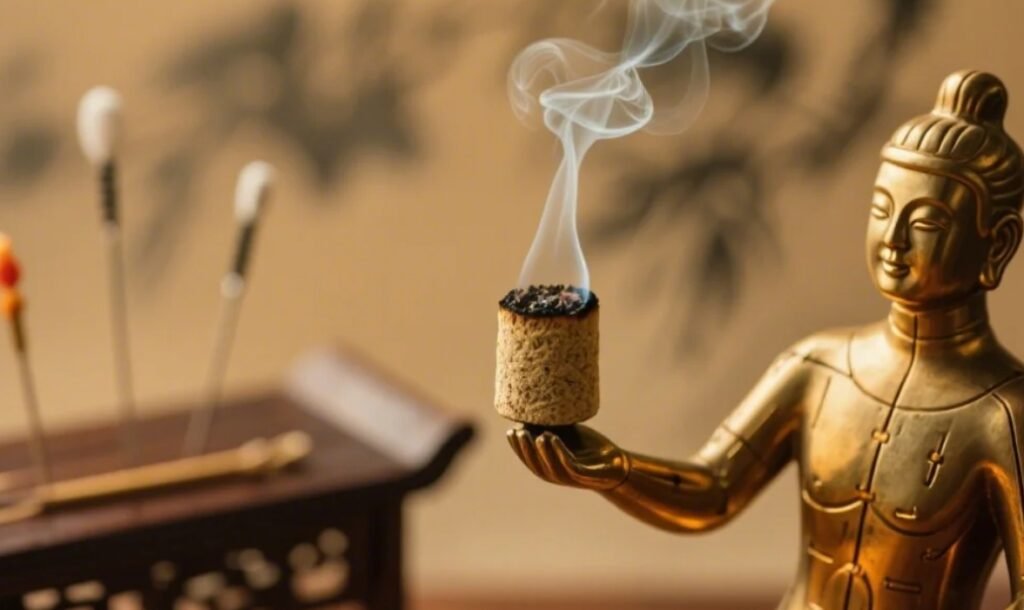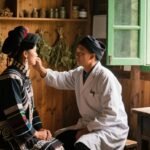Mongb gek jil (Shoulder Wind Syndrome): A Miao – Medicine Perspective
Overview
In Miao – medicine, Mongb gek jil refers to “leaking shoulder wind,” a condition caused by wind, cold, and damp pathogens invading the shoulder. This leads to stagnation of qi and blood, or muscular degeneration due to overuse and lack of nourishment.
Traditional Chinese Medicine (TCM) holds a similar view, attributing this condition to external cold-wind invasion or chronic strain that obstructs meridian qi flow, causing blood stasis and pain due to impaired nourishment of tendons and muscles.
In modern medicine, this condition corresponds to adhesive capsulitis or frozen shoulder, commonly known as “fifty shoulder.”
Disease Classification (Miao – Medicine)
Mongb gek jil is a minor disease in Miao medicine caused by the invasion of wind, cold, and dampness.
Cause and Pathogenesis
The disease is primarily triggered by environmental cold, wind, and dampness, often combined with overuse and a constitution prone to stagnation.
When external pathogens invade the shoulder, the cold causes blood to congeal. Qi stagnates, blood becomes sluggish, and pain results from poor circulation. Chronic strain further depletes qi and blood, leaving muscles and tendons undernourished, leading to persistent pain and dysfunction.
Diagnostic Essentials
1. Diagnostic Criteria:
Persistent pain and tenderness over the entire shoulder region, often resistant to touch.
Limited range of motion in the shoulder joint.
Early-stage muscle spasms; later-stage muscle atrophy, especially in the deltoid region.
Sensitivity to cold over the shoulder.
2. Supporting Examinations:
X-ray or shoulder arthrography may assist in diagnosis.

Differential Diagnosis: Mongb khob hfad hxid (Neck Sprain)
Neck sprain in Miao -medicine is caused by wind-cold invasion during sleep, improper pillow height, or awkward posture. It results in qi and blood stagnation in the neck, causing acute muscular pain. It is distinguished from Mongb gek jil by its location (neck vs. shoulder), quicker recovery time, and lack of muscle atrophy. Shoulder wind syndrome typically has slower recovery and may involve visible muscle wasting in advanced stages.
Syndrome Classification and Treatment
Clinical Manifestations:
Limited mobility in the shoulder joint; in severe cases, the shoulder and back cannot lift upward.
Diffuse tenderness, pain radiating to the neck or elbow, and deltoid muscle atrophy.
Pathological Nature:
Cold syndrome affecting the cold meridians.
Treatment Principles:
Unblock meridians and promote circulation.
Expel wind and eliminate dampness.
Herbal Formula:
Polygonum multiflorum + heshouwu – 15g
Cyperus rotundus + xiangfu – 10g
Phryma leptostachya + baimagu – 20g
Chaenomeles speciosa + mugua – 20g
Eupolyphaga sinensis + tubiecong – 10g
Boil all herbs together for oral decoction.
Herb Actions:
Polygonum multiflorum (heshouwu): Warm, bitter, sweet, and astringent. Relieves spasms and pain through blood nourishment.
Cyperus rotundus (xiangfu): Warm and pungent; regulates qi and alleviates pain.
Phryma leptostachya (baimagu): Cold and bitter; clears heat, reduces swelling, and dispels wind.
Chaenomeles speciosa (mugua): Cold and sour; soothes the liver, relaxes sinews, and eliminates dampness.
Eupolyphaga sinensis (tubiecong): Warm and salty; mildly toxic. Promotes blood circulation, removes stasis, and unblocks collaterals.
Preventive Care and Lifestyle Recommendations
Begin physical therapy early, including massage, acupuncture, rehabilitation, and infrared therapy.
Engage in appropriate shoulder joint exercises to reduce mechanical stress.
Avoid repetitive overuse and strain of the shoulder.
Protect the shoulder from cold exposure.
Commentary
In Miao medicine, Mongb gek jil is caused by the direct invasion of wind, cold, and damp pathogens into the shoulder, leading to stagnation of qi and blood. Pain arises either from obstruction (“where there is no free flow, there is pain”) or from undernourishment (“where there is no nourishment, there is pain”).
The (used in traditional contexts) focuses on unblocking meridians and removing wind and dampness. Since restricted shoulder motion can lead to disuse atrophy in later stages, it is essential to avoid cold exposure and overuse in daily life. Early (used in traditional contexts) is advised to (helps maintain) chronic progression and deterioration.


Leave a Reply